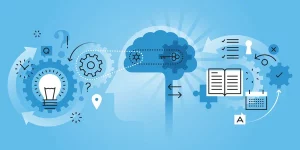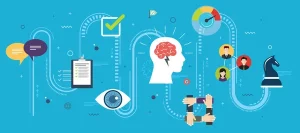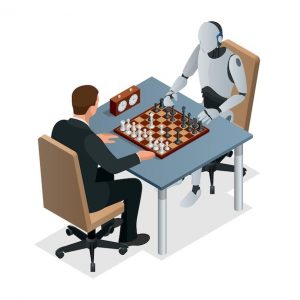Reinforcement learning, a core research area of Google DeepMind, holds immense potential for solving real-world problems using AI. However, its training data and computing power inefficiency has posed significant challenges. DeepMind, in collaboration with researchers from Mila and Université de Montréal, has introduced an AI agent that defies these limitations. This agent, known as the Bigger, Better, Faster (BBF) model, has achieved superhuman performance on Atari benchmarks while learning 26 games in just two hours. This remarkable achievement opens new doors for efficient AI training methods and unlocks possibilities for future advancements in RL algorithms.
Learn More: Unlock the incredible potential of Reinforcement Learning and tackle real-world challenges using the latest AI techniques in our workshop at the DataHack Summit 2023.
The Efficiency Challenge of Reinforcement Learning
Reinforcement learning has long been recognized as a promising approach for enabling AI to tackle complex tasks. However, traditional RL algorithms suffer from inefficiencies that hamper their practical implementation. These algorithms demand extensive training data and substantial computing power, making them resource-intensive and time-consuming.
Also Read: A Comprehensive Guide to Reinforcement Learning

The Bigger, Better, Faster (BBF) Model: Outperforming Humans
DeepMind’s latest breakthrough comes from the BBF model, which has demonstrated exceptional performance on Atari benchmarks. While previous RL agents have surpassed human players in Atari games, what sets BBF apart is its ability to achieve such impressive results within a mere two hours of gameplay—a timeframe equivalent to that available to human testers.
Model-Free Learning: A New Approach
The success of BBF can be attributed to its unique model-free learning approach. By relying on rewards and punishments received through interactions with the game world, BBF bypasses the need to construct an explicit game model. This streamlined process lets the agent focus solely on learning and optimizing its performance, resulting in faster and more efficient training.
Also Read: Enhancing Reinforcement Learning with Human Feedback using OpenAI and TensorFlow

Enhanced Training Methods and Computational Efficiency
BBF’s rapid learning achievement is the result of several key factors. The research team employed a larger neural network, refined self-monitoring training methods, and implemented various techniques to enhance efficiency. Notably, BBF can be trained on a single Nvidia A100 GPU, reducing the computational resources required compared to previous approaches.
Benchmarking Progress: A Stepping Stone for RL Advancements
Although BBF has not yet surpassed human performance across all games in the benchmark, it outshines other models in terms of efficiency. When compared to systems trained on 500 times more data across all 55 games, BBF’s efficient algorithm demonstrates comparable performance. This outcome validates the Atari benchmark’s suitability and provides encouragement to smaller research teams seeking funding for their RL projects.

Beyond Atari: Expanding the Frontier of RL
While the BBF model’s success has been demonstrated on Atari games, its implications extend beyond this specific domain. The efficient learning techniques and breakthroughs achieved with BBF pave the way for further advancements in reinforcement learning. By inspiring researchers to push the boundaries of sample efficiency in deep RL, the goal of achieving human-level performance with superhuman efficiency across all tasks becomes increasingly feasible.
Also Read: Researches Suggest Prompting Framework Which Outperforms Reinforcement Learning
Implications for the AI Landscape: A Step Towards Balance
The emergence of more efficient RL algorithms, such as BBF, serves as a vital step toward establishing a balanced AI landscape. While self-supervised models have dominated the field, the efficiency and effectiveness of RL algorithms can offer a compelling alternative. DeepMind’s achievement with BBF sparks hopes for a future where RL can play a significant role in addressing complex real-world challenges through AI.
Our Say
DeepMind’s development of the BBF model, capable of learning 26 games in just two hours, marks a significant milestone in reinforcement learning. By introducing a model-free learning algorithm and leveraging enhanced training methods, DeepMind has revolutionized the efficiency of RL. This breakthrough propels the field forward and inspires researchers to continue pushing the boundaries of sample efficiency. The future is aiming for human-level performance with unparalleled efficiency across all tasks.




